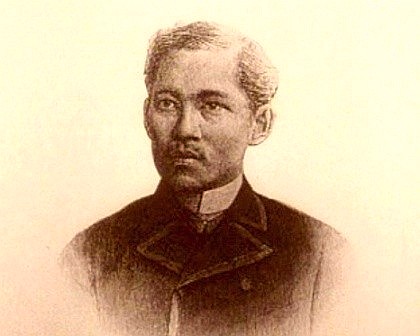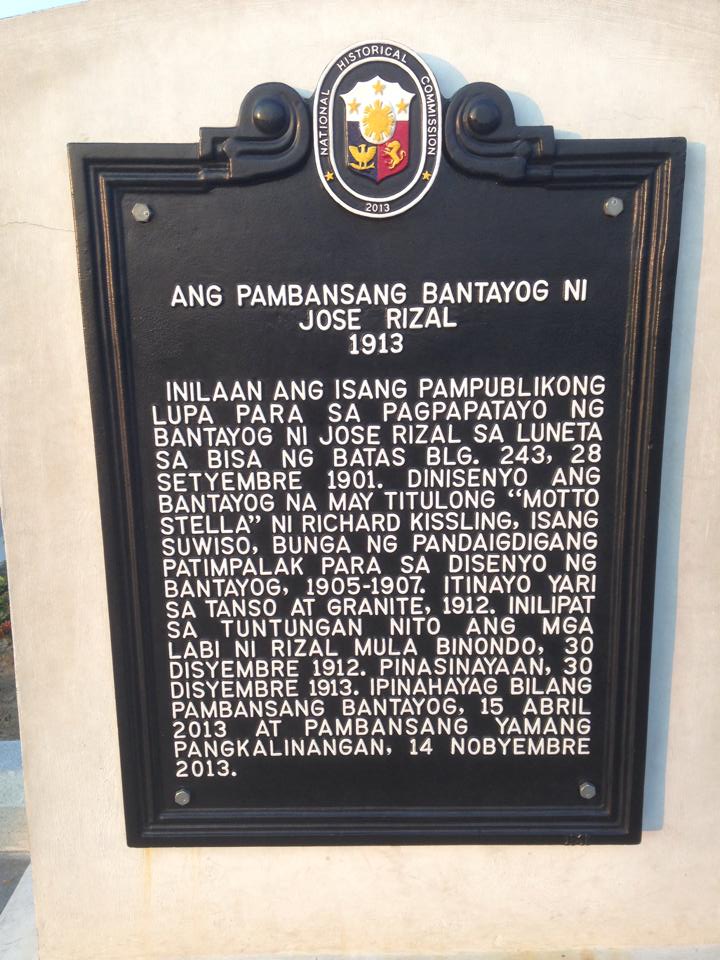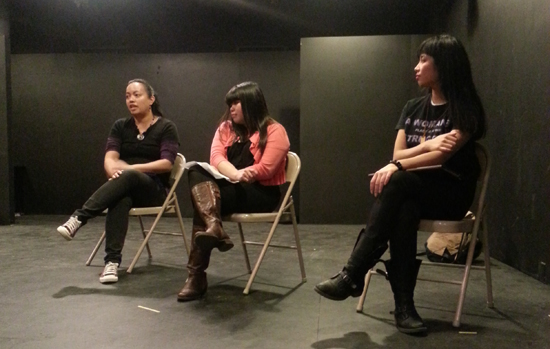 José Rizal is one of the Philippines’s most celebrated heroes. His efforts to gain independence for his homeland from Spain have been praised time and time again. In addition to graduating summa cum laude at Ateneo de Manila and the Dominican University of Santo Tomas in Manila, Rizal studied medicine at Universidad Central de Madrid, University of Paris, and University of Heidelberg in order to learn ophthalmology as a result of his mother’s growing blindness. While in Europe, Rizal fine-tuned his skills in art, literature, and science, excelling in various areas such as poetry, sculpting, cartography, martial arts, and more. His studies in Europe would have a profound impact on his beliefs in the relationship between state and religion.
As he was studying, he published two of his most famous works—Noil Me Tángere, published in Berlin in 1887, and its sequel, El Filibusterismo, published in Ghent in 1891. These novels angered Spanish and Pilipino elites as a result of its explication on the injustice of Spaniards and the government of the Philippines. In both novels, Rizal analyzes the relationship between Catholicism and Pilipino individuals as well as the influence of Spanish colonization on the government and its corruption. Noli Me Tángere and El Filibusterismo were crucial in sculpting a national Pilipino identity as well as rustling up discussion on the rights of Pilipinos under Spanish rule. His criticisms about the influence of Catholic priests on every day Pilipino life as well as their ungodly actions put him in the spotlight as someone to watch out for. At the end of Spanish rule, Catholic priests owned about 400,000 acres of land. They were known for killing off those who threatened their wealth and power, but were seen as father figures to the Pilipinos as the head authority figures in all decisions, and as Luis H. Francia puts it, a “god-king.”
José Rizal is one of the Philippines’s most celebrated heroes. His efforts to gain independence for his homeland from Spain have been praised time and time again. In addition to graduating summa cum laude at Ateneo de Manila and the Dominican University of Santo Tomas in Manila, Rizal studied medicine at Universidad Central de Madrid, University of Paris, and University of Heidelberg in order to learn ophthalmology as a result of his mother’s growing blindness. While in Europe, Rizal fine-tuned his skills in art, literature, and science, excelling in various areas such as poetry, sculpting, cartography, martial arts, and more. His studies in Europe would have a profound impact on his beliefs in the relationship between state and religion.
As he was studying, he published two of his most famous works—Noil Me Tángere, published in Berlin in 1887, and its sequel, El Filibusterismo, published in Ghent in 1891. These novels angered Spanish and Pilipino elites as a result of its explication on the injustice of Spaniards and the government of the Philippines. In both novels, Rizal analyzes the relationship between Catholicism and Pilipino individuals as well as the influence of Spanish colonization on the government and its corruption. Noli Me Tángere and El Filibusterismo were crucial in sculpting a national Pilipino identity as well as rustling up discussion on the rights of Pilipinos under Spanish rule. His criticisms about the influence of Catholic priests on every day Pilipino life as well as their ungodly actions put him in the spotlight as someone to watch out for. At the end of Spanish rule, Catholic priests owned about 400,000 acres of land. They were known for killing off those who threatened their wealth and power, but were seen as father figures to the Pilipinos as the head authority figures in all decisions, and as Luis H. Francia puts it, a “god-king.”
In 1981, Rizal visited Hong Kong where he came into contact with fellow expatriates, who gave him a better assessment on the situation in the Philippines. Upon finding out that the people in his hometown of Calamba had been dispossessed of their land by Dominicans, Rizal proposed creating a settlers’ colony in Sandakan, which is now a part of Malaysia today. The Spanish rejected his request, worried that the colony could someday turn into a headquarters for rebellion.
Rizal returned to the Philippines the next year and formed La Liga Filipina, an organization dedicated to creating a community of Pilipinos devoted to the reform of the Pilipino government and industry. La Liga Filipina raised money for scholarships, legal aid, and loans, in order to create an independent community. Catholic friars feared the organization and conspired to have Rizal exiled to the northwestern coastal town of Dapitan in Mindanao.
During his exile, Andrés Bonifacio, a former member of La Liga Filipina, formed Kataasta-asan Kagalagalangan Katipunan, commonly known as Katipunan, a secret anti-Spanish society dedicated to the independence of the Philippines through force. When contacted by Bonifacio about his opinion on the organization, Rizal greatly disapproved of the society’s use of violence. Bonifacio was upset about Rizal’s disapproval but still used Rizal’s name as a password, which in later years would lead authorities to assume Rizal’s involvement.
During the Spanish American War, Rizal volunteered to work as a doctor for the Spanish forces in Cuba in order to show loyalty to Spain, but upon landing Barcelona, he was arrested for his part in the revolution. He was sent back to Manila where he was found guilty of treason, despite the incredibly strong defense.
On December 30, 1896, José Rizal was executed by a firing squad of fellow Pilipinos. Spanish troops stood behind the countrymen with rifles to their backs, just in case they did not pull the trigger. Before he was shot down, Rizal whispered, “Consummantum est” or “It is finished,” the same as Jesus Christ.
Seen as a martyr, Rizal’s death exalted his fame as well as strengthened the Pilipino fight for independence from Spain. His novels, Noil Me Tángere and El Filibusterismo, cultivated a Pilipino identity, similar to how Harriet Beecher Stowe’s Uncle Tom’s Cabin helped fuel the abolitionist movement in America during the 1850s. Rizal’s characters represented typical Pilipinos and the plight of the novels’ main characters allowed Pilipinos to sympathize and relate to each other.
A country can only be successful if it has a nation, and Rizal was a critical part in forming the Pilipino national identity. Without a nation, the Pilipinos would not have had the drive to start a revolution against the Spanish and retake their land. José Rizal rightly deserves the praise he has received as one of the Philippines’s greatest heroes.
Photo Credit: Michael Francis McCarthy and Lauren Lalicon





